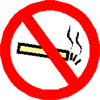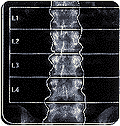|
Whilst osteoporosis is treatable, there is currently no cure. The following steps can be taken to prevent or mitigate the effects of osteoporosis:
 |
A balanced diet should be taken from an early age that is rich in calcium and vitamin D. Inadequate calcium is thought to contribute to the development of osteoporosis. Calcium is needed for the proper function of the heart, muscles and nerves, and for the clotting of blood. Men and premenopausal women should consume a minimum of 1,000 mg of calcium per day. Postmenopausal women should consume 1,500 mg. Excellent sources of calcium include milk (skimmed milk contains as much as full-fat products), yogurt, chopped collards, broccoli, and canned sardines with bones. Foods are preferred over supplements as sources of calcium because bone health is a total nutrition issue. Foods, particularly dairy foods, contain a host of essential nutrients important for bone health, such as calcium, phosphorus, vitamin D, protein, potassium, and magnesium. All of these are important to some extent to bone health. In particular, vitamin D is needed for the body to absorb calcium. Salt intake should be restricted as sodium is known to affect the excretion of calcium and may contribute to osteoporosis. |
| |
|
 |
Weight-bearing exercise that places stress on the major joints, thus encouraging bone growth, should be routinely performed. Excellent exercises include walking, jogging, aerobic dance, bowls, and tennis. Recent studies suggest that weight training also may help maintain bone density. |
| |

Weight-bearing exercise |
| |
|
 |
A healthy lifestyle should be adopted with no smoking or excessive alcohol consumption. |
| |
 
A healthy lifestyle (no smoking and alcohol) |
| |
|
 |
Bone density testing should be carried out and medication taken as appropriate. |
| |

Regular check-up
(From HK Baptist Hospital) |
| |
|
 |
The elderly with osteoporosis should take precautions to avoid accidental falls. The use of a walking-stick or frame, handrails in the house, glasses to correct vision, and non-slip soles to shoes can do much to reduce the morbidity and mortality associated with this condition. |
| |

Elderly precautions
(elderly person with walking-stick and wearing glasses) |
|
| |
|
|